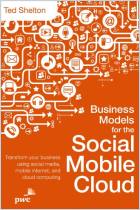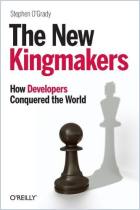Read or listen offline
Amazon KindleRecommendation
The “Consumption Gap” is the difference between what enterprise technology companies deliver and what their corporate customers actually use. Just as you’ll likely never understand – much less use – all the functions and features of your smartphone, computer or software, tech firms frustrate their corporate clients with unnecessary bells and whistles. But change is afoot, and tech companies must prepare for a radical industry reworking. Tech consultants J. B. Wood, Todd Hewlin and Thomas Lah detail the transformations wrought by recession, the cloud and consumer electronics, and offer tech suppliers practical advice on adapting to those changes. getAbstract applauds this treatise on how technology itself affects technology companies and recommends its long-term vision to all business managers.
Summary
About the Authors
J. B. Wood is the president and CEO of the Technology Services Industry Association, where Thomas Lah is the executive director. Todd Hewlin is a managing director of TCG Advisors.




















Comment on this summary